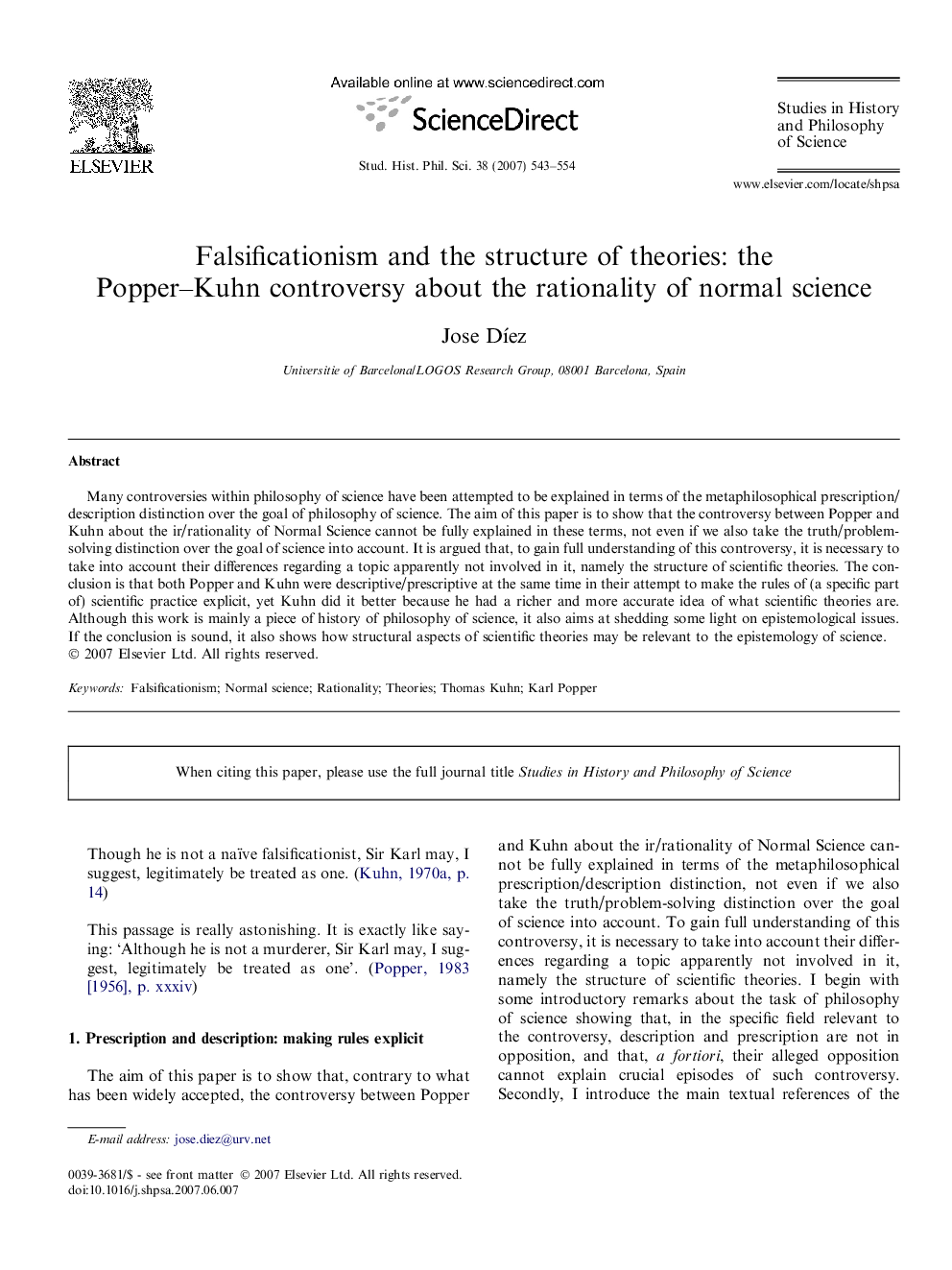| Article ID | Journal | Published Year | Pages | File Type |
|---|---|---|---|---|
| 1160982 | Studies in History and Philosophy of Science Part A | 2007 | 12 Pages |
Many controversies within philosophy of science have been attempted to be explained in terms of the metaphilosophical prescription/description distinction over the goal of philosophy of science. The aim of this paper is to show that the controversy between Popper and Kuhn about the ir/rationality of Normal Science cannot be fully explained in these terms, not even if we also take the truth/problem-solving distinction over the goal of science into account. It is argued that, to gain full understanding of this controversy, it is necessary to take into account their differences regarding a topic apparently not involved in it, namely the structure of scientific theories. The conclusion is that both Popper and Kuhn were descriptive/prescriptive at the same time in their attempt to make the rules of (a specific part of) scientific practice explicit, yet Kuhn did it better because he had a richer and more accurate idea of what scientific theories are. Although this work is mainly a piece of history of philosophy of science, it also aims at shedding some light on epistemological issues. If the conclusion is sound, it also shows how structural aspects of scientific theories may be relevant to the epistemology of science.
